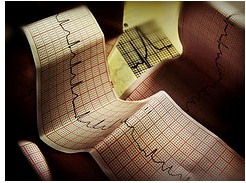Health tips
30/09/2010| IslamWeb
Since an ounce of prevention is worth a pound of cure, and for the sake of the pilgrim's health we will list some of the health problems that he may encounter and the ways of prevention – Allah Willing.
Sunstroke:
It is caused by prolonged exposure to the blazing heat of the sun, which makes the body lose large amounts of liquids and salts that are necessary for the body. The results include weakness of the muscles, drowsiness, complete fatigue and may lead to fainting in some cases. We advise you to avoid prolonged exposure to the heat of the sun. You should use an umbrella and drink large quantities of liquids.
Contagious diseases:
Contagious diseases, such as typhoid, cerebrospinal fever, flu and diarrhea spread widely in the season of Hajj due to the multitude of people coming from different countries from all over the world, and the lack of health awareness in some of these countries. Some of the pilgrims coming from these countries may carry the microbes that cause these diseases, thus, leading to their spread epidemically – May Allah Protect us. The pilgrim is advised to take proper vaccines produced for these diseases, avoid eating food without washing it well and drinking clean water and large quantities of liquids.
The symptoms of these diseases start with fever, fatigue and colic accompanied by constipation followed by mild diarrhea and pain in the stomach. Severe headache and vomiting may also occur. Once a pilgrim finds any of these symptoms, he should immediately consult the nearest medical center or hospital to run the necessary tests and take the proper medication to avoid complications that may endanger his life.
Some necessary health recommendations:
Recommendations relevant to some diseases:
1- Heart patients:
People who suffer from narrowness in the coronary arteries which supply blood to the heart muscle should take their medication regularly and avoid exhausting and stressing themselves. They should carry their prescription pills for expanding the arteries with them, which are placed under the tongue when they experience chest pain. They should also take full rest. If the pain becomes severe, they should consult the nearest medical center to receive the necessary treatment. Sometimes they may need to be transferred to specialized hospitals in order to complete the required tests and undergo intensive treatment.
2- Kidney patients:
People who suffer chronic kidney infections are advised to drink large amounts of liquids and avoid prolonged exposure to the sun. That is because when the body loses liquids through perspiration, this may lead to deficiency in kidney function.
3- Diabetics:
Diabetics who use insulin should keep their insulin shots in a cool place so that they do not lose their effectiveness. They should take their injections on time and have their meals on a regular basis to avoid a drop in their blood sugar level that may endanger their lives. Diabetics should not exhaust themselves, and they should avoid crowded places as much as possible. It is recommended that they carry small sugar pills to take upon experiencing symptoms of shortage of sugar, such as feeling of hunger or perspiration accompanied by heart beats. It is important that they consult the nearest medical center to have necessary modification to their insulin dose after testing the level of blood sugar.
4- Asthma patients:
People who suffer bronchial asthma have to receive their medication regularly, whether pills or inhalers. They should always carry along their inhalers that widen their bronchial tubes and use them when they find difficulty in breathing or chest wheezing. They should also rest and avoid crowds as much as possible lest they suffer asthma, in which case, they should consult the nearest hospital to receive intensive treatment in the form of oxygen taken via inhalers, or injections. They may need to take antibiotics in case of chest inflammation. A person who suffers from these disorders must drink large amounts of liquids and avoid prolonged exposure to the sun.
5- Hypertension patients:
Patients who suffer hypertension should bring along a sufficient quantity of their medication and take them on time. They should lessen the amount of salt in their food. It is recommended that they visit one of the medical centers to measure their blood pressure from time to time to make sure that it is within the normal range.
Finally, we wish all pilgrims a successful and accepted Hajj as well as a healthy and safe return home. We implore Allah The Almighty to remove all affliction and disease from us and from all Muslims.
www.islamweb.net

